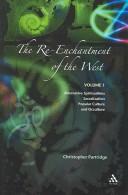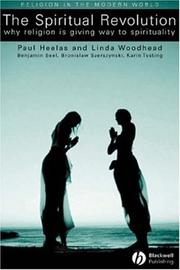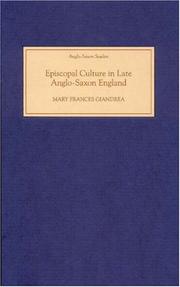| Listing 1 - 10 of 21 | << page >> |
Sort by
|
Book

Year: 2021 Publisher: Tübingen Tübingen University Press
Abstract | Keywords | Export | Availability | Bookmark
 Loading...
Loading...Choose an application
- Reference Manager
- EndNote
- RefWorks (Direct export to RefWorks)
This book presents case studies of the SFB 1070 ResourceCultures, which use an extended resource definition. Resources are analysed as contingent means to construct, sustain and alter social relations, units and identities. Accordingly, resources are seen as means of social practices of actors that depend on cultural and social appropriation and valuation. They constitute ResourceCultures. The contributions cover the topics of cross-sectional working groups and conferences that shaped the interdisciplinary collaboration on cultural, spatial and temporal dimensions of resources and ResourceCultures.
Valuations --- Sacralization --- Identities --- Knowledge --- Materiality
Book

Year: 2021 Publisher: Tübingen Tübingen University Press
Abstract | Keywords | Export | Availability | Bookmark
 Loading...
Loading...Choose an application
- Reference Manager
- EndNote
- RefWorks (Direct export to RefWorks)
This book presents case studies of the SFB 1070 ResourceCultures, which use an extended resource definition. Resources are analysed as contingent means to construct, sustain and alter social relations, units and identities. Accordingly, resources are seen as means of social practices of actors that depend on cultural and social appropriation and valuation. They constitute ResourceCultures. The contributions cover the topics of cross-sectional working groups and conferences that shaped the interdisciplinary collaboration on cultural, spatial and temporal dimensions of resources and ResourceCultures.
Archaeology --- Valuations --- Sacralization --- Identities --- Knowledge --- Materiality
Book

Year: 2021 Publisher: Tübingen Tübingen University Press
Abstract | Keywords | Export | Availability | Bookmark
 Loading...
Loading...Choose an application
- Reference Manager
- EndNote
- RefWorks (Direct export to RefWorks)
This book presents case studies of the SFB 1070 ResourceCultures, which use an extended resource definition. Resources are analysed as contingent means to construct, sustain and alter social relations, units and identities. Accordingly, resources are seen as means of social practices of actors that depend on cultural and social appropriation and valuation. They constitute ResourceCultures. The contributions cover the topics of cross-sectional working groups and conferences that shaped the interdisciplinary collaboration on cultural, spatial and temporal dimensions of resources and ResourceCultures.
Archaeology --- Valuations --- Sacralization --- Identities --- Knowledge --- Materiality

ISBN: 0567041239 Year: 2005 Publisher: London / New York T & T Clark International
Abstract | Keywords | Export | Availability | Bookmark
 Loading...
Loading...Choose an application
- Reference Manager
- EndNote
- RefWorks (Direct export to RefWorks)
disenchantment of the West --- the re-enchantment of the West --- new religions --- alternative spiritualities --- occulture --- wellbeing --- the Holistic milieu --- healthcare --- eco-enchantment --- the contemporaray sacralization of psychedelics --- cyberspirituality --- the sacralization of the extraterrestrial --- contemporary Western demonology --- eschatological re-enchantment
Book
ISBN: 9783050059747 9783050065151 305006515X 3050059745 3110401290 3110553775 Year: 2014 Publisher: Berlin ; New York Walter de Gruyter
Abstract | Keywords | Export | Availability | Bookmark
 Loading...
Loading...Choose an application
- Reference Manager
- EndNote
- RefWorks (Direct export to RefWorks)
Der Band fragt nach der historischen Signatur literarischer Säkularisierungsphänomene zwischen dem 11. und 15. Jahrhundert, nach einer 'Säkularisierung vor der Säkularisierung' also, in der die begriffsprägenden Oppositionen transzendent-immanent, heilig-profan, geistlich-weltlich noch nicht neuzeitlich gegeneinander ausdifferenziert sind. In exemplarischen Analysen wird entfaltet, wie sich Ästhetisches und Religiöses in der Literatur des Mittelalters überschneiden, aber auch voneinander abgrenzen. Im Fokus stehen textuelle (narrative, figurative, spiritualitätsgeschichtlich oder politisch relevante) Säkularisierungsstrategien in unterschiedlichsten Textgattungen. Den Beiträgen gelingt es, die gegenwärtigen Debatten zum Thema "Literarische Säkularisierung" historisch neu zu perspektivieren.
German literature --- Secularization --- Secularism in literature --- Literature, Medieval --- Appropriation and impropriation --- Impropriation --- Church and state --- History and criticism --- History --- Law and legislation --- Narration. --- aesthetics. --- religion. --- sacralization. --- secularization.

ISBN: 1405119586 1405119594 9781405119597 9781405119580 Year: 2005 Publisher: Malden (Mass.) : Blackwell,
Abstract | Keywords | Export | Availability | Bookmark
 Loading...
Loading...Choose an application
- Reference Manager
- EndNote
- RefWorks (Direct export to RefWorks)
Spirituality. --- #GGSB: Spiritualiteit --- #GGSB: Geestelijke lezing (geel) --- 248.1 --- #SBIB:316.331H340 --- #SBIB:316.331H300 --- Ascetische theologie --- Godsdienst en cultuur: algemeen --- Godsdienst en samenleving: algemeen --- 248.1 Ascetische theologie --- Spirituality --- Spiritual-mindedness --- Philosophy --- Religion --- Spiritual life --- Christian spirituality --- Geestelijke lezing (geel) --- Spiritualiteit --- religion --- spirituality --- Kendal --- spiritual revolution --- sacralization --- secularization

ISBN: 1282185365 9786612185366 1846155398 1843832836 Year: 2007 Publisher: Woodbridge, UK ; Rochester, NY : Boydell Press,
Abstract | Keywords | Export | Availability | Bookmark
 Loading...
Loading...Choose an application
- Reference Manager
- EndNote
- RefWorks (Direct export to RefWorks)
A radical new interpretation of the Anglo-Saxon episcopate, bringing to light previously unused evidence. This first full-length study of the Anglo-Saxon episcopate explores the activities of the bishops in a variety of arenas, from the pastoral and liturgical to the political, social, legal and economic, so tracing the development ofa particularly English episcopal identity over the course of the tenth and eleventh centuries. It makes detailed use of the contemporary evidence, previously unexploited as diffuse, difficult and largely non-narrative, rather than that from after the Norman Conquest; because this avoids the prevailing monastic bias, it shows instead that differences in order [between secular and monk-bishops] had almost no effect on their attitudes toward their episcopalroles. It therefore presents a much more nuanced portrait of the episcopal church on the eve of the Conquest, a church whose members constantly worked to create a well-ordered Christian polity through the stewardship of the English monarchy and the sacralization of political discourse: an episcopate deeply committed to pastoral care and in-step with current continental liturgical and theological developments, despite later ideologically-charged attempts tosuggest otherwise; and an institution intricately woven, because of its tremendous economic and political power, into the very fabric of English local and regional society. MARY FRANCIS GIANDREA teaches at George Mason University.
Church of England --- Bishops --- History --- England --- Church history --- Anglican Church --- Anglikanskai︠a︡ t︠s︡erkovʹ --- Ecclesia Anglicana --- Kirche von England --- United Church of England and Ireland --- RELIGION / History. --- Anglo-Saxon episcopate. --- Christian polity. --- English episcopal identity. --- English monarchy. --- George Mason University. --- MARY FRANCIS GIANDREA. --- bishops. --- economic. --- eleventh century. --- legal. --- liturgical. --- pastoral. --- political. --- sacralization. --- social. --- tenth century. --- theological developments.
Book
Year: 2021 Publisher: Basel, Switzerland MDPI - Multidisciplinary Digital Publishing Institute
Abstract | Keywords | Export | Availability | Bookmark
 Loading...
Loading...Choose an application
- Reference Manager
- EndNote
- RefWorks (Direct export to RefWorks)
The focus of this Special Issue is the analysis of the role played by sacrifice in complex secular and modern societies, in which, the concept of ‘emotional self-restriction' (Freud, 201; Elias, 2009), as a keystone of civilization, has collapsed. Today, the old idea of sacrifice is superseded by the idea of ‘useless sacrifice’ (Duvignaud, 1997), not because the logic of excess carried by sacrifice is opposite to the capitalistic idea of efficacy, but mainly because the contemporary actor is far away from any ideas of containment, restraint, or control. At the base of current civilizations, ‘instinctive sacrifice’ is not yet the rule. We could be closer to a new version of the ‘intellectual sacrifice’ (Weber, 2004). The weakening of the forces of transcendence (Reckwitz, 2012) in the secular age sets up spaces of ‘symbolic exchange’ (Baudrillard, 1980), which play the articulator role in our hyperfragmented society. In this context, the idea of compensatory loss remains present in current wars and migratory conflicts, in the economic life of unregulated capitalism, in the new imperative of corporal beauty, in global sports competitions, and so on. All of these are contexts, current contexts, where sacrifice plays a substantive role for understanding our age. In Merlin Donald’s terms of “evolutive evolution” (1991) and with the force that drives the dynamics of change through all societies, we understand that sacrifice performs a role in current societies, but a role in which its meaning as well as its function have already changed. The aim of this Special Issue is to analyze and explain what this role is, studying some of the different social faces that it presents. Our hypothesis is radically sociological, because we understand that different dynamics of change have exerted a transformative influence over sacrifice.
Humanities --- Social interaction --- sacrifice --- gift --- victim --- post-heroic --- sacralization of the person --- pilgrimage --- sacred --- festivals --- Wagner --- Bayreuth --- Durkheim --- opera --- imaginary --- violence --- rituality --- collective communion --- late modernity --- martyrdom --- ETA --- Yoyes --- ethnography --- psychoanalysis --- cultural trauma --- victims of terrorism --- ritual --- performance --- expropriation --- crisis --- financialization --- capitalism --- sacredness of the person --- self-sacrifice --- exchange --- relinquishment --- secular religiosity --- n/a
Book
Year: 2021 Publisher: Basel, Switzerland MDPI - Multidisciplinary Digital Publishing Institute
Abstract | Keywords | Export | Availability | Bookmark
 Loading...
Loading...Choose an application
- Reference Manager
- EndNote
- RefWorks (Direct export to RefWorks)
The focus of this Special Issue is the analysis of the role played by sacrifice in complex secular and modern societies, in which, the concept of ‘emotional self-restriction' (Freud, 201; Elias, 2009), as a keystone of civilization, has collapsed. Today, the old idea of sacrifice is superseded by the idea of ‘useless sacrifice’ (Duvignaud, 1997), not because the logic of excess carried by sacrifice is opposite to the capitalistic idea of efficacy, but mainly because the contemporary actor is far away from any ideas of containment, restraint, or control. At the base of current civilizations, ‘instinctive sacrifice’ is not yet the rule. We could be closer to a new version of the ‘intellectual sacrifice’ (Weber, 2004). The weakening of the forces of transcendence (Reckwitz, 2012) in the secular age sets up spaces of ‘symbolic exchange’ (Baudrillard, 1980), which play the articulator role in our hyperfragmented society. In this context, the idea of compensatory loss remains present in current wars and migratory conflicts, in the economic life of unregulated capitalism, in the new imperative of corporal beauty, in global sports competitions, and so on. All of these are contexts, current contexts, where sacrifice plays a substantive role for understanding our age. In Merlin Donald’s terms of “evolutive evolution” (1991) and with the force that drives the dynamics of change through all societies, we understand that sacrifice performs a role in current societies, but a role in which its meaning as well as its function have already changed. The aim of this Special Issue is to analyze and explain what this role is, studying some of the different social faces that it presents. Our hypothesis is radically sociological, because we understand that different dynamics of change have exerted a transformative influence over sacrifice.
sacrifice --- gift --- victim --- post-heroic --- sacralization of the person --- pilgrimage --- sacred --- festivals --- Wagner --- Bayreuth --- Durkheim --- opera --- imaginary --- violence --- rituality --- collective communion --- late modernity --- martyrdom --- ETA --- Yoyes --- ethnography --- psychoanalysis --- cultural trauma --- victims of terrorism --- ritual --- performance --- expropriation --- crisis --- financialization --- capitalism --- sacredness of the person --- self-sacrifice --- exchange --- relinquishment --- secular religiosity --- n/a
Book
Year: 2021 Publisher: Basel, Switzerland MDPI - Multidisciplinary Digital Publishing Institute
Abstract | Keywords | Export | Availability | Bookmark
 Loading...
Loading...Choose an application
- Reference Manager
- EndNote
- RefWorks (Direct export to RefWorks)
The focus of this Special Issue is the analysis of the role played by sacrifice in complex secular and modern societies, in which, the concept of ‘emotional self-restriction' (Freud, 201; Elias, 2009), as a keystone of civilization, has collapsed. Today, the old idea of sacrifice is superseded by the idea of ‘useless sacrifice’ (Duvignaud, 1997), not because the logic of excess carried by sacrifice is opposite to the capitalistic idea of efficacy, but mainly because the contemporary actor is far away from any ideas of containment, restraint, or control. At the base of current civilizations, ‘instinctive sacrifice’ is not yet the rule. We could be closer to a new version of the ‘intellectual sacrifice’ (Weber, 2004). The weakening of the forces of transcendence (Reckwitz, 2012) in the secular age sets up spaces of ‘symbolic exchange’ (Baudrillard, 1980), which play the articulator role in our hyperfragmented society. In this context, the idea of compensatory loss remains present in current wars and migratory conflicts, in the economic life of unregulated capitalism, in the new imperative of corporal beauty, in global sports competitions, and so on. All of these are contexts, current contexts, where sacrifice plays a substantive role for understanding our age. In Merlin Donald’s terms of “evolutive evolution” (1991) and with the force that drives the dynamics of change through all societies, we understand that sacrifice performs a role in current societies, but a role in which its meaning as well as its function have already changed. The aim of this Special Issue is to analyze and explain what this role is, studying some of the different social faces that it presents. Our hypothesis is radically sociological, because we understand that different dynamics of change have exerted a transformative influence over sacrifice.
Humanities --- Social interaction --- sacrifice --- gift --- victim --- post-heroic --- sacralization of the person --- pilgrimage --- sacred --- festivals --- Wagner --- Bayreuth --- Durkheim --- opera --- imaginary --- violence --- rituality --- collective communion --- late modernity --- martyrdom --- ETA --- Yoyes --- ethnography --- psychoanalysis --- cultural trauma --- victims of terrorism --- ritual --- performance --- expropriation --- crisis --- financialization --- capitalism --- sacredness of the person --- self-sacrifice --- exchange --- relinquishment --- secular religiosity
| Listing 1 - 10 of 21 | << page >> |
Sort by
|

 Search
Search Feedback
Feedback About UniCat
About UniCat  Help
Help News
News